Best movies to help you learn advanced English vocabulary
Looking to expand your English vocabulary? Certain movies offer a fantastic opportunity to encounter sophisticated language and complex dialogue.
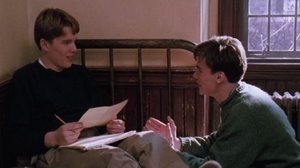

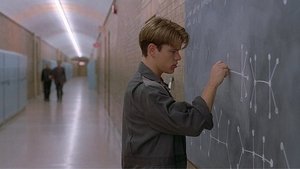
Films can be a surprisingly effective tool for language learning, especially when it comes to encountering a wider range of vocabulary than you might find in everyday conversation. Movies that delve into specific historical periods, feature characters with high levels of education or specialized knowledge, or are based on literary works often employ richer, more nuanced language.
Think about period dramas or films centered around academia or intellectual pursuits. These genres frequently showcase dialogue that is not only well-written but also packed with words that might be new to non-native speakers or even native speakers looking to deepen their lexicon. Watching these films with subtitles (either in your native language initially, or English subtitles as you progress) allows you to see the words written down, aiding comprehension and retention.
The context is key. Hearing words used naturally in sentences by skilled actors can help you understand their meaning and usage much better than simply looking them up in a dictionary. Pay attention to how characters speak, their tone, and the situations they are in. This immersive experience can make learning new words feel less like studying and more like entertainment.
8. Inception (2010)
Inception, Christopher Nolan's mind-bending heist film set within dreams, involves complex explanations of its own unique rules and technology. The characters, a group of specialists who perform corporate espionage by infiltrating the subconscious, use specific terminology to describe their process – extraction, inception, totems, levels of the dream world.
While the film is driven by action and visual spectacle, understanding the plot requires paying close attention to the exposition and technical jargon created for the story. The language is precise and functional, designed to build a believable framework for the sci-fi concept. It might introduce some unique vocabulary related to dreams and psychology, but it's more about understanding the film's internal logic than expanding a broad lexicon.
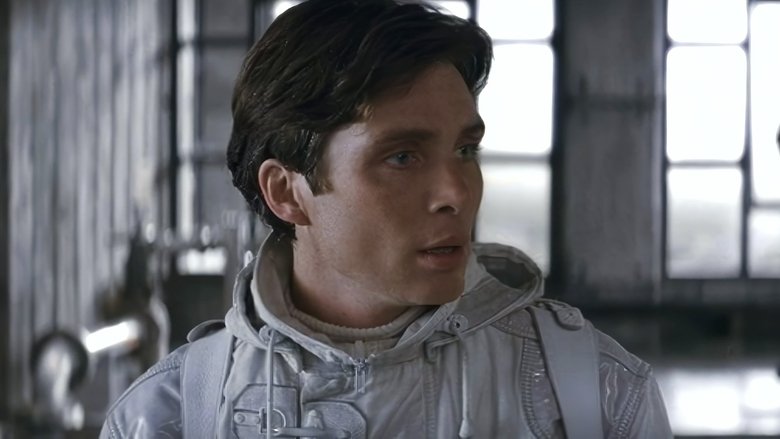
7. Eternal Sunshine of the Spotless Mind (2004)
Charlie Kaufman's screenplay for Eternal Sunshine of the Spotless Mind is known for its intricate structure and philosophical themes. The dialogue reflects the complex emotional and psychological landscape of the characters, Joel and Clementine, as they attempt to erase each other from their memories.
The language isn't necessarily filled with overly obscure words, but its depth comes from the abstract concepts being discussed – memory, consciousness, identity, and love. The conversations can be introspective, fragmented, and symbolic, requiring careful listening to grasp the underlying meanings. It's a film where the way things are said, and the ideas they convey, contribute more to linguistic complexity than just individual words.
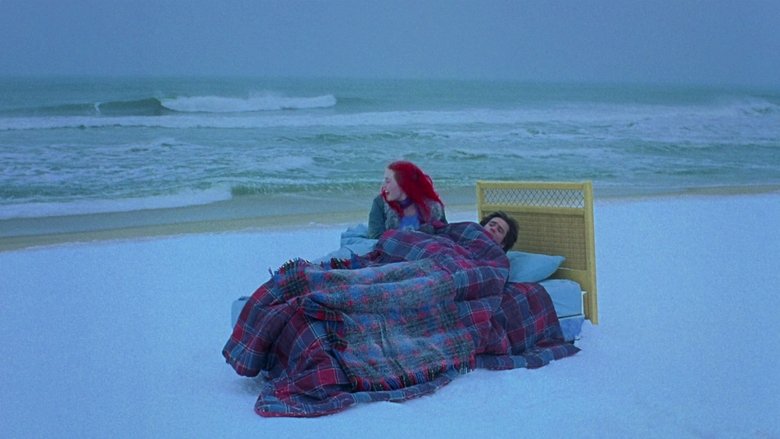
6. A Beautiful Mind (2001)
A Beautiful Mind chronicles the life of Nobel Laureate John Nash, a brilliant mathematician. As the film delves into his academic pursuits at Princeton and his later work, you'll encounter language used in university settings, theoretical discussions, and formal presentations.
While much of the scientific concepts are conveyed visually or through simplified explanations, the dialogue among academics and during lectures can expose viewers to more specialized or formal vocabulary. Russell Crowe's portrayal of Nash captures the intensity of intellectual thought, and the film provides a glimpse into the kind of language used in higher education and research environments, though it's not primarily focused on expanding general lexicon.
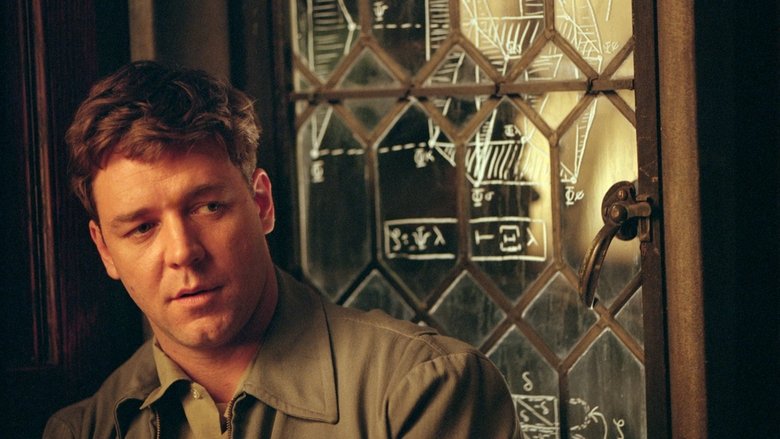
5. Good Will Hunting (1997)
Good Will Hunting showcases intense intellectual exchanges, primarily between the prodigious Will Hunting (Matt Damon) and his therapist, Sean Maguire (Robin Williams). While the language can sometimes be sharp, witty, or even informal, especially in Will's interactions with his friends, the core of the film lies in profound therapeutic and academic discussions.
Will, a self-taught genius, possesses an extraordinary command of various subjects, which is reflected in his dialogue. Sean Maguire, an intelligent and insightful therapist, challenges Will using thoughtful and complex language. You'll find moments of sophisticated vocabulary intertwined with raw, authentic conversation, providing a blend of registers that can be illuminating for language learners.

4. The Reader (2008)
The Reader, adapted from Bernhard Schlink's novel, presents a complex story unfolding across different time periods in post-WWII Germany. Language plays a crucial role, particularly through the act of reading.
While the core narrative involves a young man and an older woman, the film's later sections delve into legal proceedings and historical context, often featuring more formal and deliberate language. Kate Winslet, in her Oscar-winning role, delivers a performance that subtly explores literacy and communication. The film's themes of guilt, literacy, and understanding contribute to dialogue that can be quite nuanced, offering exposure to vocabulary used in serious, reflective, and judicial contexts.
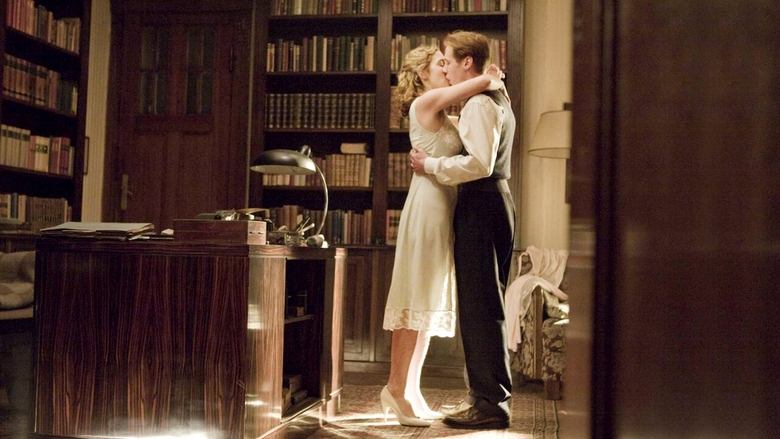
3. Dead Poets Society (1989)
For those seeking to expand their vocabulary through the lens of literature and intellectual exploration, Dead Poets Society is an essential watch. Set in a rigid 1950s preparatory school, the film centers on an unconventional English teacher, John Keating (played by the brilliant Robin Williams), who inspires his students through poetry and the power of language.
The movie is filled with discussions about classic literature, the meaning of words, and the art of expression. Keating's lessons are often philosophical and challenging, encouraging the boys to think critically and articulate their thoughts with precision. You'll encounter literary terms, poetic language, and sophisticated vocabulary used in both formal academic settings and passionate personal revelations. It's a celebration of language's ability to shape thought and perception.

2. The Great Gatsby (2013)
Stepping into the opulent world of the Roaring Twenties through The Great Gatsby offers a fantastic opportunity to absorb a different kind of English lexicon. Based on F. Scott Fitzgerald's classic novel, the dialogue and narration reflect the sophisticated, sometimes flowery, and often deliberate language of the era and its affluent society.
While some contemporary slang of the 1920s might appear, the underlying structure and vocabulary draw heavily from Fitzgerald's renowned prose. Baz Luhrmann's adaptation brings this world to vivid life, full of parties and period detail. Listening to the characters, particularly Leonardo DiCaprio as Gatsby and Tobey Maguire as the narrator Nick Carraway, delivers a masterclass in descriptive and expressive English, quite distinct from modern conversational styles.
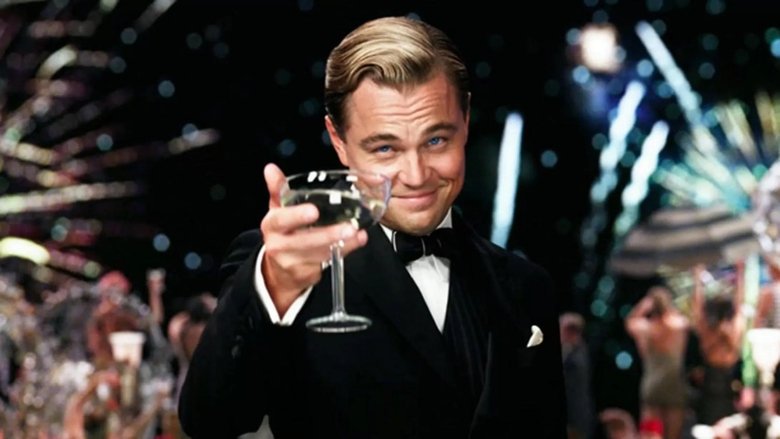
1. The King's Speech (2010)
If your goal is to delve into the nuances of the English language, The King's Speech is arguably the perfect starting point. This film is literally about speaking English – specifically, how King George VI, who suffered from a severe stammer, worked with an Australian speech therapist, Lionel Logue, to prepare for his crucial wartime radio broadcasts.
The narrative is rich with conversations focused on articulation, pronunciation, and the very mechanics of speech. You'll hear language used in formal, historical contexts, offering a window into a more deliberate and perhaps elevated style of communication. Colin Firth's Oscar-winning performance is captivating, as is Geoffrey Rush's portrayal of Logue. The film not only tells a compelling human story but also serves as a fascinating case study in overcoming linguistic challenges, making the language itself a central character.

